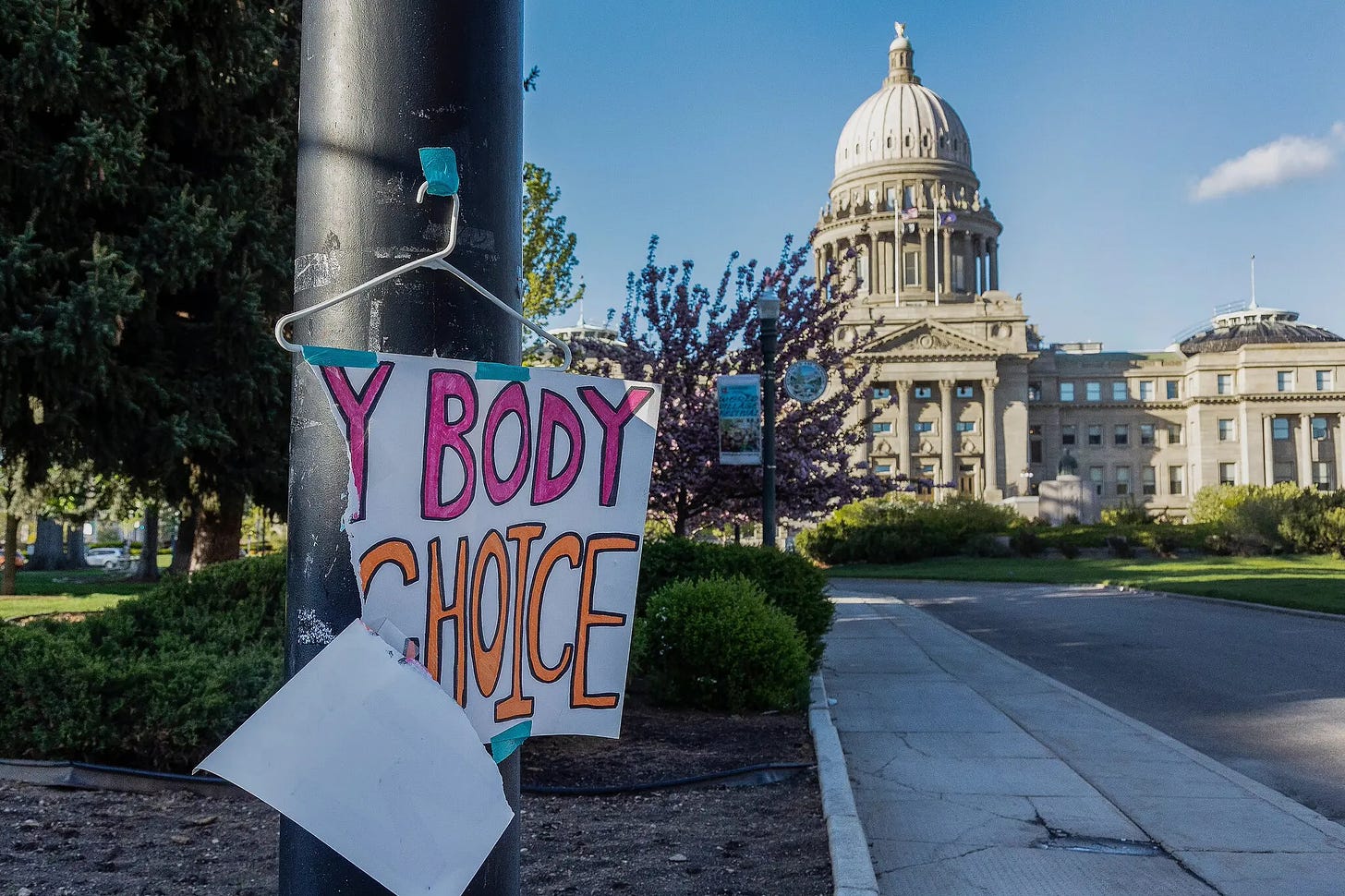
On Wednesday, the United States Supreme Court heard arguments in a case that will impact the future of abortion bans and their legitimacy in at least half a dozen other states in this country. The legal issue at hand: whether Idaho’s near-total ban on abortion is so strict that it violates a federal law requiring emergency care for any patient, including providing abortions for pregnant women in dire medical emergency situations.
The appeal has been brought by Idaho officials — which includes Republican Speaker of the Idaho House Mike Moyle — who are requesting a stay and are contesting a lawsuit the Biden administration filed over emergency abortion access. Idaho is among 14 other states that currently ban abortion at all stages of pregnancy, with only a few limited exceptions allowed. You can listen to the full hearing embedded in the video below:
This case will be the first time the US Supreme Court has considered the implications of a state-wide abortion ban since overturning the nationwide right embedded in Roe v. Wade on June 24, 2022. Idaho’s current abortion ban allows an abortion procedure if the life of the pregnant woman in question is in danger, but not will not allow it if the issue involves her health merely deteriorating. In this case, the federal government has argued that this type of medical restriction is a direct violation of the Emergency Medical Treatment and Labor Act (EMTALA), which was put into effect nearly 40 years ago.
The EMTALA was enacted in 1986, and the law requires that patients receive appropriate emergency room care. The Biden administration has argued that this type of care should include medical abortions in certain situations under the law, which applies to any hospital that receives federal funding under the Medicare program.
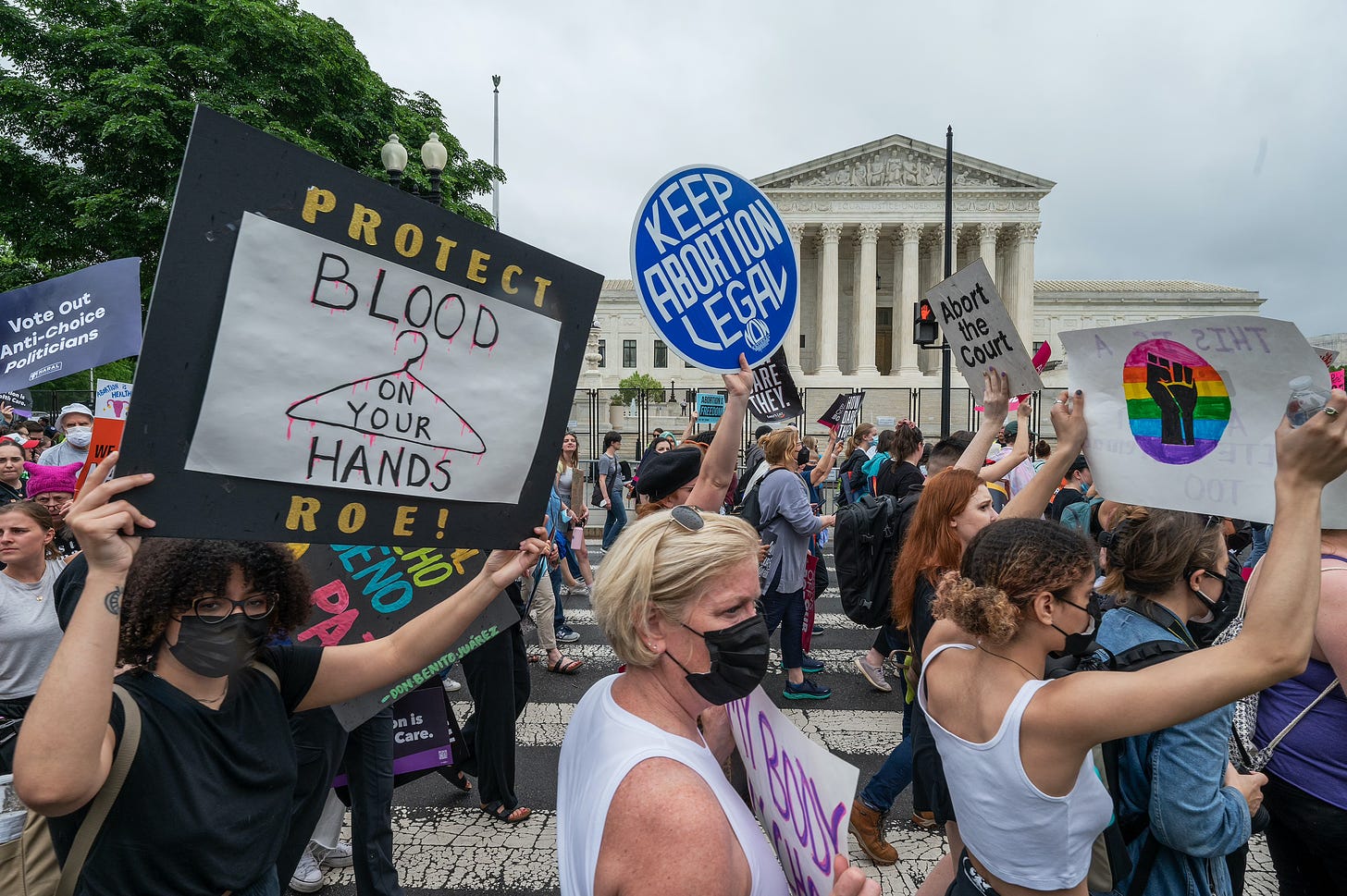
The EMTALA law dictates that when a patient goes to an emergency room with an urgent medical issue, hospitals must either provide treatment to stabilize the patient or transfer the patient to a medical facility that can provide care, regardless of the patient’s ability to pay. The law also makes a point to reiterate Article VI, Paragraph 2 of the US Constitution, also known as the Supremacy Clause, which says that if a state law conflicts with the federal law, the federal law takes precedence.
An Idaho trigger law involving abortion, which was a provision that would become law if and when the Supreme Court overturned Roe v. Wade, was enacted in 2020. That law was called The Defense of Life Act, and it immediately went into effect in the State of Idaho when the Supreme Court issued the ruling in Dobbs v. Jackson Women’s Health in 2022.
The state law in question criminalizes the act of any medical professional who performs an abortion and subjects them to penalties, including up to five years in prison. Under The Defense of Life Act, any health care professional, who has been found to have violated the law, can lose their professional license.
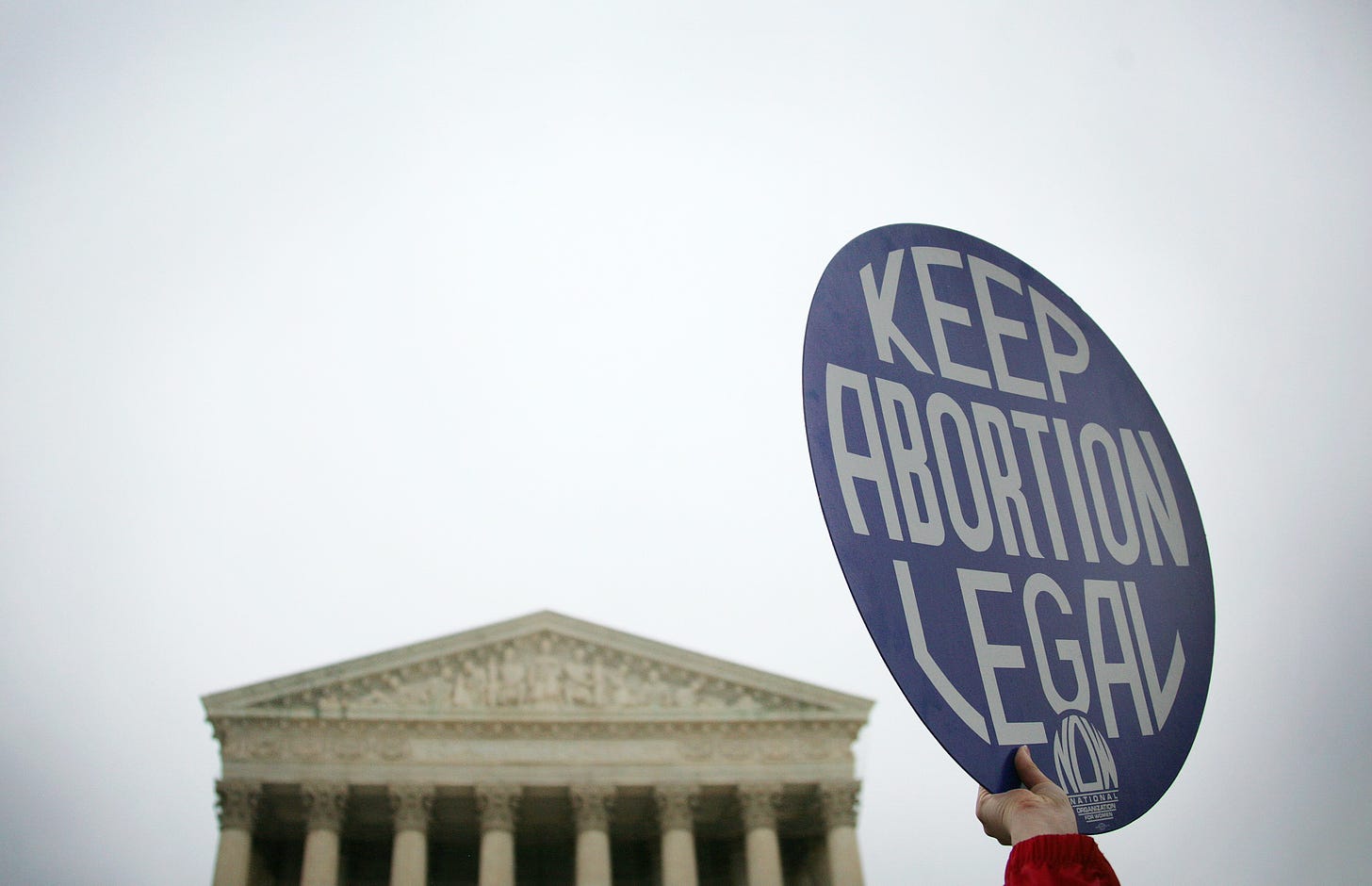
Following Idaho’s implementation of this abortion trigger law, the federal government sued the state, and in August of 2022 a judge blocked the state from enforcing provisions concerning medical care based on the federal requirements specified under EMTALA. The State of Idaho appealed that ruling and the case has now made it’s way to the highest court in the land.
Doctors with the Idaho Coalition for Safe Healthcare shared the following case, along with others involving similar relevant circumstances, in a filing with the Supreme Court ahead of Wednesday’s oral arguments. The woman in question had arrived at an Idaho emergency room for treatment when she was 18-weeks pregnant and in considerable medical distress. Her condition involved hourglassing membranes, and was determined to be so critical that the patient would inevitably miscarry.
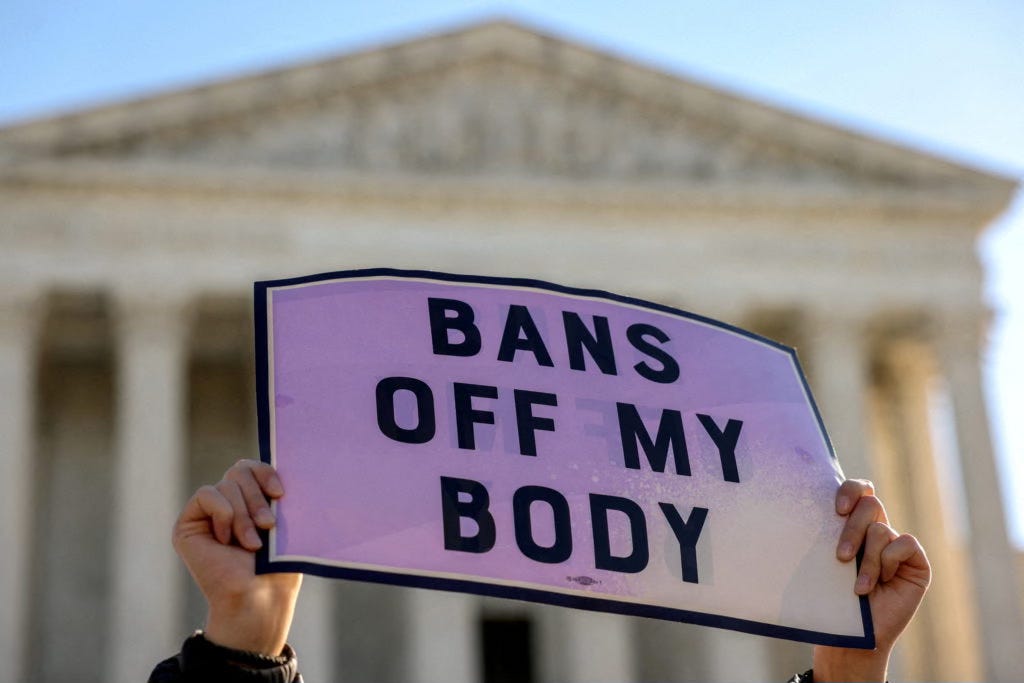
Despite the need for an abortion because the infection risk was high and the fetus would not survive, the doctors providing her care feared the criminal repercussions of Idaho’s newly implemented abortion restrictions. They felt unable to provide the medical treatment that is standard for this condition.
The patient could not travel to another state, as she would undoubtedly miscarry during the trip and risk bleeding to death, so she waited at home in her condition. Several days later, the woman delivered a still-born baby in the emergency room that had previously denied her appropriate medical care, and she was hospitalized to treat a rapidly developing infection from spreading.
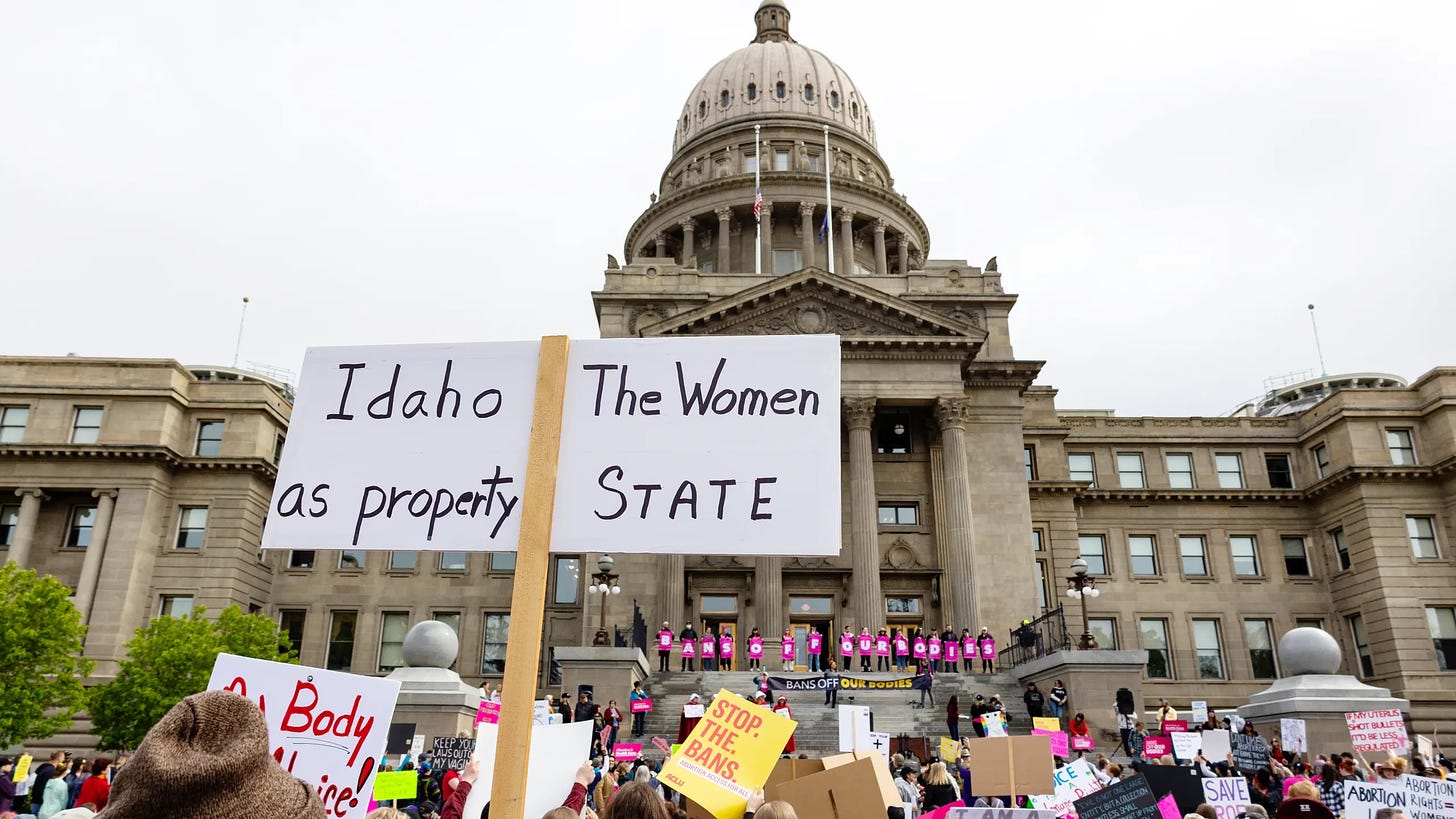
The State of Idaho contends that the Biden administration is trying to circumvent the Supreme Court’s 2022 ruling in Dobbs that let states prohibit abortion. During oral arguments yesterday, Joshua Turner, an attorney representing the State of Idaho in this case, told the Supreme Court that the state does not believe its abortion ban conflicts with the federal law.
Turner further argued the ban allows emergency departments to provide abortions if a pregnant woman has a medical problem that is likely to lead to her death, not definitively facing imminent death. Turner said the Idaho ban does have exceptions for life-saving abortions, and accused the Biden administration of wanting to wrongly expand the abortion ban exception that would turn hospitals into “abortion enclaves.”
The three liberal justices strongly objected to Turner’s interpretation, pointing out situations in which women in critical situations would be denied abortions under Idaho’s ban. When Justice Sonia Sotomayor asked if the ban would prevent abortion in a situation where a woman would otherwise lose an organ or have serious medical complications, Mr. Turner acknowledged that it would saying, “Yes, Idaho law does say that abortions in that case aren’t allowed.”
Sotomayor also asked about a patient experiencing complications, who was denied an abortion earlier in her pregnancy, and by the time she was able to deliver the fetus, the baby had died, and the entire complication resulted in a forced hysterectomy.

United States Solicitor General Elizabeth Prelogar argued that there is a real conflict between Idaho’s law and the federal law, but the conflict is narrow. Prelogar made the point that in this case, the Biden administration is not trying to interfere with Idaho’s overall ability to criminalize abortions outside of certain medical emergencies.
“They have tried to make this case be about the broader debate for access to abortion in cases of unwanted pregnancy, but that’s not what this case is about at all,” Prelogar explained to the Court. “Idaho’s ban on abortion is enforceable in virtually all of its applications. But in the narrow circumstances involving grave medical emergencies, Idaho cannot criminalize the essential care” required under EMTALA.
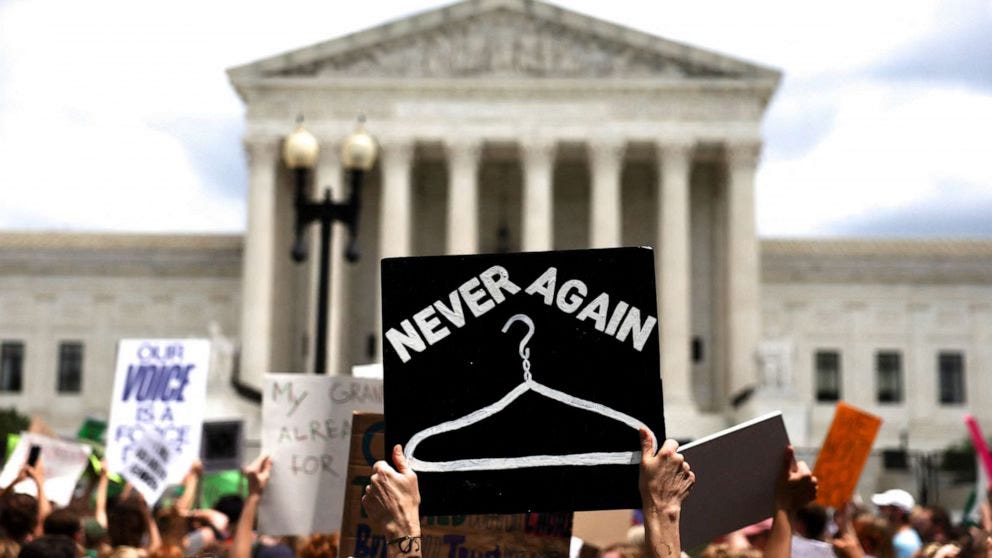
Prelogar’s argument was met with deep skepticism from several of the court’s conservative justices, including Justice Samuel Alito, who wrote the Dobbs decision which effectively overturned Roe v. Wade. Alito responded to Prelogar saying, “How can you impose restrictions on what Idaho can criminalize, simply because hospitals in Idaho have chosen to participate in Medicare?”
Justice Clarence Thomas asked whether there are any other examples of laws passed under the Spending Clause, which was the guiding authority under which EMTALA was passed, that would override a state’s criminal prohibitions. Justice Neil Gorsuch, asked if the federal government could use health care funding programs to transform state regulation of medicine into essentially a federal function.

Prelogar tried to assure Justice Gorsuch that this proposed scenario was far out in left field for the actual dispute in this case, and said the Court could set limits that would prevent the federal government from taking control of a state function. But, Prelogar finished with: “I don’t think we’re anywhere close to that.”
Other conservative Justices, including Chief Justice John Roberts and Amy Coney Barrett, asked probing questions of both sides. Barrett asked about how much of a conflict there was between Idaho’s ban and the Biden administration’s interpretation of the federal emergency health care law, establishing that there is, in fact, a conflict.
While the Supreme Court has already allowed the state ban to go into effect, even in medical emergencies, yesterday’s hearing made it clear that we are no closer to reading how all Justices will rule in this case. It was unclear whether members of the conservative majority, more specifically the possible conservative swing-votes, were swayed by the Biden administration’s argument that federal law overrides the state in rare emergency cases where a pregnant patient’s health is at serious risk.

In order to stop the current abortion ban restrictions in Idaho, the Biden administration will need the votes of two members of the court’s conservative majority. Justice Brett Kavanaugh notably signaled sympathies toward the State of Idaho during yesterday’s argument, which means the case will likely come down to the votes Roberts and Coney Barrett, the two justices who leveled difficult questions at both sides.
This ruling, which is ultimately expected by late June, is also important because it will affect a similar case out of Texas, a state which has seen a rise in complaints from pregnant women who are being turned away from emergency room treatment, that could have wide implications nationwide.

Ultimately, Conservative Justices will find that the federal government is overreaching and encroaching into state authority, and the Liberal Justices will argue that the state law, with its limited “life-of-the-woman exemption,” did not expressly account for the gruesome medical emergencies that are occurring following Dobbs — therefore the federal law should be used to fill in the gaps. Until then, we will have to wait patiently, and hope that the two conservative swing votes decide to put their money where their mouth of textual rhetoric is, and put the US Constitution first.
Amee Vanderpool writes the SHERO Newsletter and is an attorney, published author, contributor to newspapers and magazines, and analyst for BBC radio. She can be reached at avanderpool@gmail.com or follow her on Twitter @girlsreallyrule.
Paid subscriptions and one-time tributes embedded in each article allow me to keep publishing critical and informative work that is sometimes made available to the public — thank you. If you like this piece and want to support independent journalism further, you can forward this article to others, get a paid subscription or gift subscription, or donate once, as much as you like today.




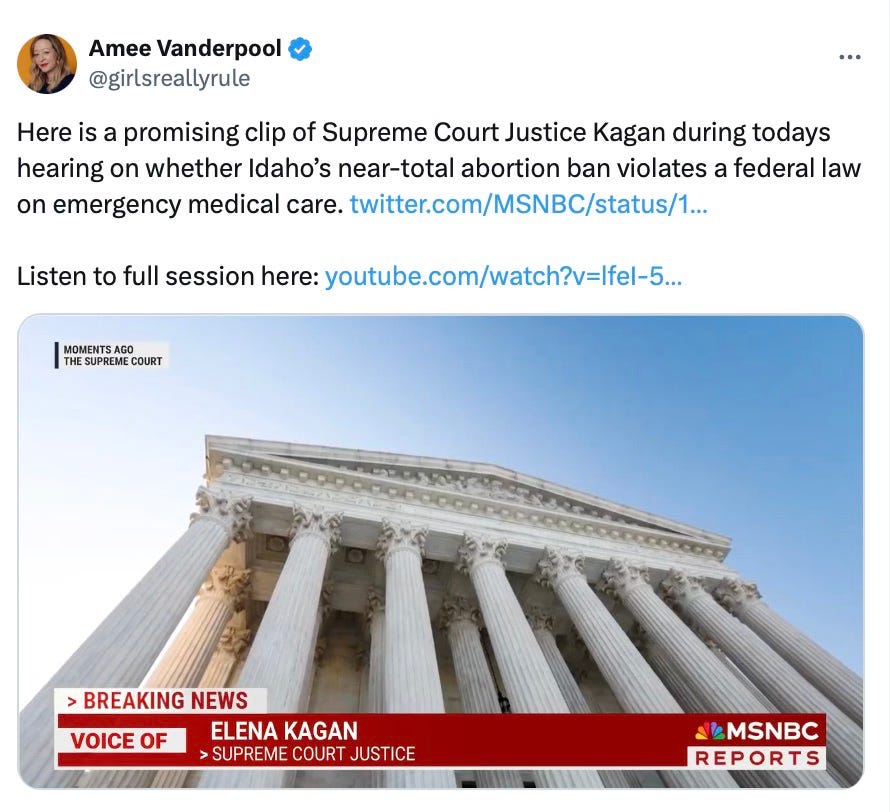
It's all so disgusting and immoral. I'm infuriated at how fast this country is sliding into a failed state with misogyny and women as second class citizens embedded in our laws and blessed by this so-called Supreme Court. As we've said a million times, the fight to overturn Roe was never, is not, and will never be about saving babies, it was and is about controlling women, period, hard stop. The fact that here we are in 2024 having to let courts and judges decide what is/is not appropriate healthcare is insanity to me. These assholes can barely interpret the very law they swore to uphold, much less have any credible thing to say about women's health. So a live baby and a dead mother is a win in their book? Explain that shit to me. We need a democratic party and president with balls of steel, not afraid to blast these non-elected, insulated windbags daily, DAILY. Biden should have a daily briefing on how the Mullah Court is fucking up America today, call these republican toadies out. Obviously appealing to decorum and professionalism has failed us, 6-3. Time to call these dipshits out on a regular basis for their inanity, cruelness, corruption and basic failure to understand law. Dems can rally around abortion all they want to win elections but unless they are willing to do something drastic to reign in this court, it will be for naught. Court reform should be top of mind; impeach Kavanaugh because he's a blatant liar, impeach Thomas because he's irredeemably corrupt, establish term limits, rotate the entire federal judiciary into supreme court seats every year, something, anything. It's time for some creative thinking and our democratic party is still playing by the 1950s playbook.